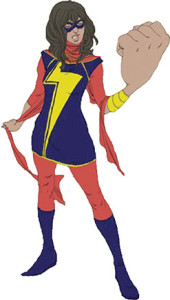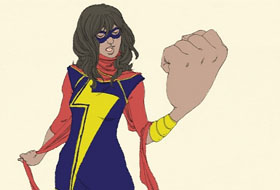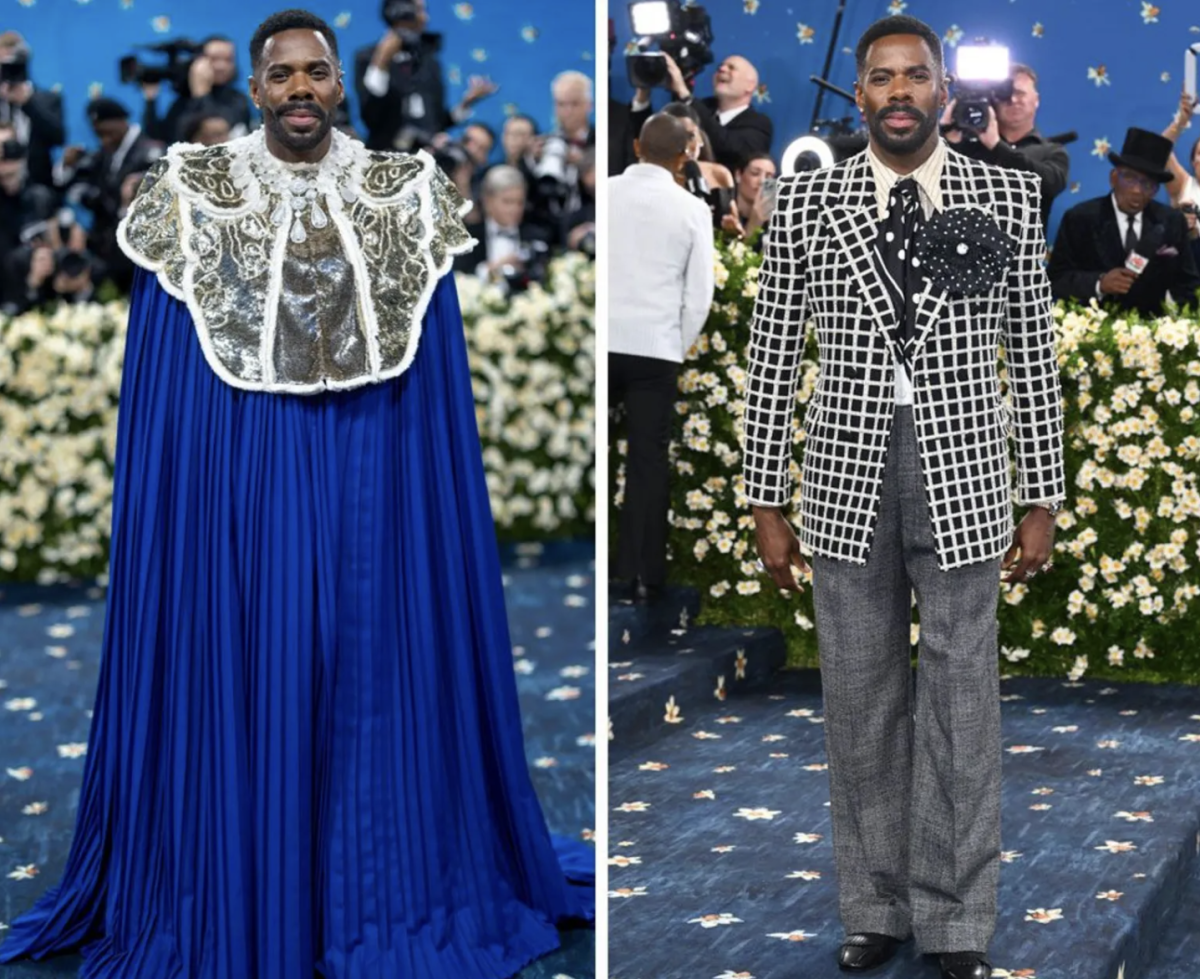Implications of Marvel’s brand new teenage Muslim superhero, Kamala Khan, affect Hockaday students and parents in different ways

When most superheroes take off their masks, a white male is revealed. But in Marvel’s new comic, Ms. Marvel, an unexpected new superhero is being revealed: a Muslim girl.
In January 2014, Marvel will introduce Kamala Khan, a teenage Muslim girl living in Jersey City, N.J. Kamala is one of three Muslims represented in Marvel comics, but she is the first female Muslim to headline her own comic.
The idea for a Muslim female superhero was conceived from a conversation between Sana Amanat and Steve Wacker, two editors at Marvel. They decided to make the comic after Amanat shared her experiences as a Muslim girl growing up in America.
While growing up as a first generation American, Kamala closely followed the career of fictional comic hero Carol Danvers, the original “Ms. Marvel.” Danvers is Kamala’s own idol—Danvers represents the “blond haired, blue eyed” ideal that Kamala tries to emulate, and after she discovers her powers, Kamala assumes the name “Ms. Marvel,” following in the footsteps of her predecessor.
As a Muslim growing up in America, Kamala will experience unique obstacles due to her faith and culture. “Her brother is extremely conservative… her mom is paranoid that she’s going to touch a boy and get pregnant. Her father wants her to concentrate on her studies and become a doctor,” Amanat said in a New York Times article.
Throughout the comic, Kamala struggles with being a Muslim in America, resolving her cultural and religious differences, all while fighting villains and attending school.
Although Kamala was based off Amanat’s own life experiences, sophomore Aleena Tariq, who is a practicing Muslim, identified with her social issues.
“Her parents want her to be a doctor. I think that’s relatable to a lot of girls at Hockaday. So [the character] is good if you’re struggling with some aspects [of life],” Tariq said.
Not only is the comic relatable to many Hockaday girls, but senior Raheela Ahsan sees the diversity as a reflection of the Hockaday community. “I think it advances the reputation of independent women, especially in a comic culture… It also embraces the diversity appreciation Hockaday has developed over the past few decades.”
However, the creators are already aware that Kamala’s cultural issues will most likely draw backlash, not only from those who are “anti-Muslim” but from “people who are Muslim and might want the character portrayed in a particular light,” Amanat said.
Even though the ultra-conservative, “doctor-minded” family is a common stereotype normally attributed to South East Asians, Tariq does not think these issues apply in the United States.
“Her mom’s view of pregnancy is too extreme… [My parents] have never said that, and I don’t think that’s too common for Muslims in the United States to hold those [kinds] of views,” Tariq said.
However, Tariq’s mom, Aisha Tariq, interprets her social issues in a different way. Even though she recognizes that many South Asian households uphold the “doctor” stereotype, she thinks that the doctor issue shows how “committed her parents are to their daughter’s education.”
While Marvel hopes to promote the equality of cultural minorities, some hold reservations about the comic’s launch.
“It’s refreshing to see a new Muslim character, because it’s a relevant religion, but I think some people will see her oppression [by her family] as too stringent and apply that to the whole religion,” Tariq said.
In contrast, others hope that the comic will display the progressiveness of minorities. “I see it portraying Kamala’s family as the stereotypical Muslim family: restrictive and confining of their daughter. However, I feel that it breaks stereotypes rather than enforcing them,” Ms. Tariq said.
Additionally, Ahsan believes that Kamala’s stereotypes “apply to nearly every person who struggles with blending into the American way of life” and are what “make her more relatable.”
Marvel’s twist on the typical American teenager is what makes her more approachable, according to Ahsan. Even though Kamala is a teenager who lives following the traditions of her faith and has a stereotypical Muslim upbringing, “[she] is living a completely average and normal life [by] facing the struggle that thousands of teens just like her are across the US.”
For now, no one knows how successful the new Ms. Marvel series will be. The comic’s total sales, once released, may become the measure of the series accomplishment in the future.
But for Tariq, the story is already an achievement. “It really shows that [Islam] is prevalent enough to be featured in a well-known comic, and that we can change people’s perspectives of [Islam].”
– Sunila Steephen


